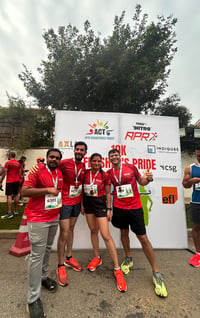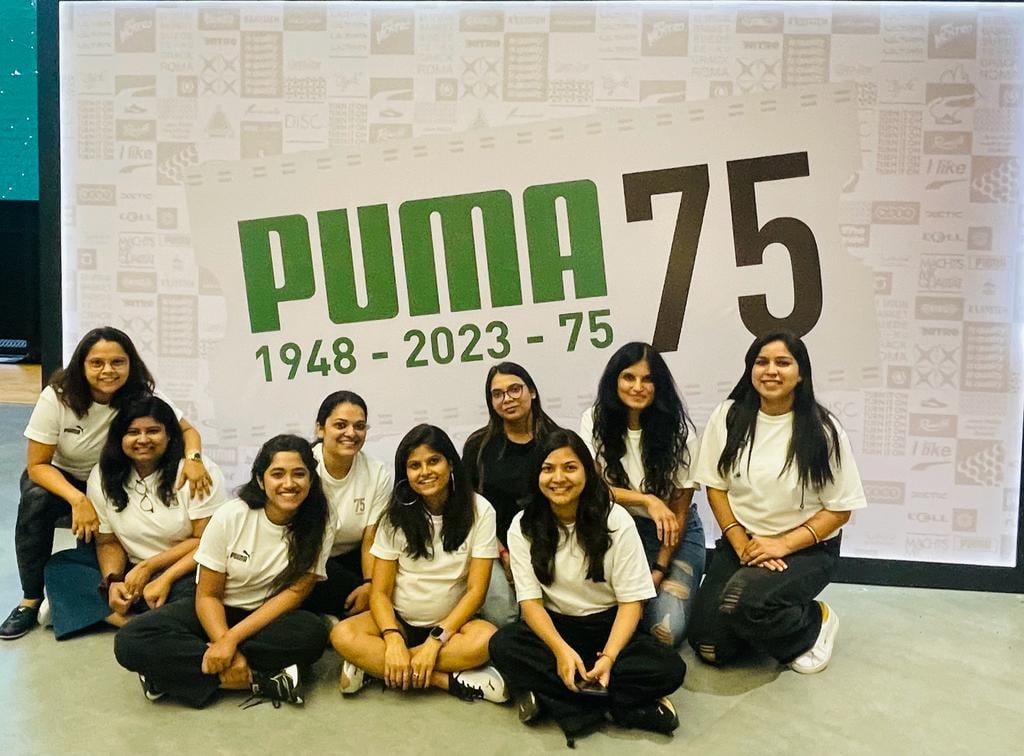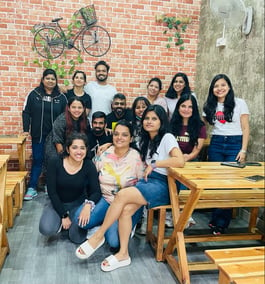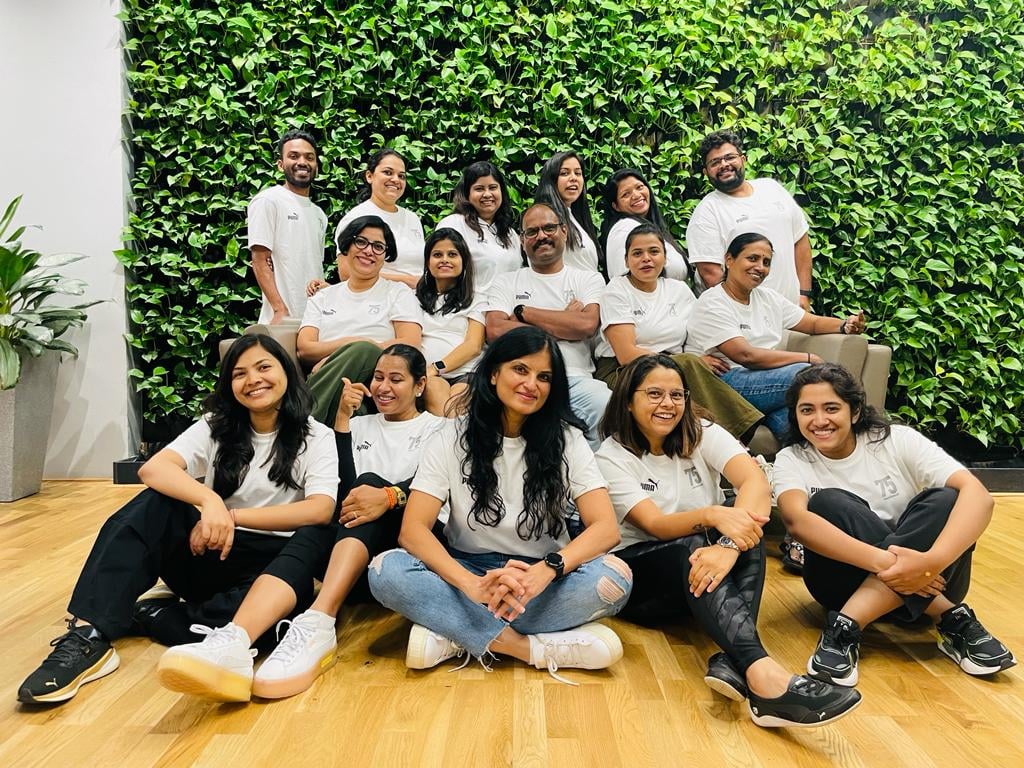Search the latest and greatest job opportunities in sport
Our latest interview is with Manisha Agarwal, Director and Head – People & Organisation and Strategic Initiatives at PUMA India. She shares about her career journey, and some interesting insights about the strategy that made PUMA the number 1 sports brand in the country.
Thanks for being with us, Manisha! Can you walk us through your career inside Puma?
 Interestingly, my career did not start in People & Organization, I came from a very different background. I went to Design college and studied fashion retail, so the initial part of my career (around 14 years) was actually in fashion merchandising. Then, I joined Puma in 2006, still in the merchandising team. There was a time when I was also heading marketing for a little while along with my merchandising role, and after four years, I took a break from PUMA to become an entrepreneur.
Interestingly, my career did not start in People & Organization, I came from a very different background. I went to Design college and studied fashion retail, so the initial part of my career (around 14 years) was actually in fashion merchandising. Then, I joined Puma in 2006, still in the merchandising team. There was a time when I was also heading marketing for a little while along with my merchandising role, and after four years, I took a break from PUMA to become an entrepreneur.
How did you end up in the People & Organization (P&O) department?
After five years acting as a consultant for fashion brands, I decided to come back to a corporate career and PUMA happened to have a role in People & Organization. After doing the interviews I was convinced that P&O functions are integral to the organization. It's extremely critical to the company, they are hugely impactful on the business, and therefore it would be an interesting opportunity to explore. It’s since been 8 years and I am extremely satisfied with how my role has shaped up over the years in the People and Organization team.
PUMA is the number 1 sports brand in India, which we know is a very challenging and very peculiar commercial environment. What are some of the characteristics you could share with readers about this market in a specific?
We started in 2006, and frankly, we were the last entrant into a market with well-pre-established competing brands and from there on, taking the top spot has been an exhilarating journey. When we think back on what made it possible, a few things deserve to be highlighted.
One of the key factors contributing to the success of PUMA India can be attributed to the exceptionally stable leadership team in place. Their unwavering guidance and expertise have played a significant role in shaping the organization's growth and achievements. Most of the people who joined us in 2006 and 2007 are still parts of my leadership team and that has been a huge pillar of strength for the brand; the vision they started with, the passion they had in them, and the drive they started with is still present in the company.

Certain strategies that were implemented within our organization have also proven to be effective. One very large strategy that we put in place was our focus on D2C. India is a market where multi-brand organized retail is not very evolved, so to create the customer experience that a brand wants, it's extremely important to own the retail experience. We focused a lot on creating this direct-to-consumer experience for our customers. With 400 retail stores, 160 of which are directly owned and operated, we have established a significant market presence. We provide a seamless experience for customers across all stores, including those operated by partners, resulting in a loyal customer base.
Our marketing strategy prioritized the need for differentiation, which led to the creation of campaigns that stood out from those of our competitors. We always wanted to pick a point of view and talk about it. For example, if you see our latest campaign, ‘Let There Be Sport’, it reiterates that as a market leader, we want to create a culture of sport in the country. We also focused a lot on local collaborations and local ambassadors who people could connect with.
Finally, I would like to emphasize that much of our success can be attributed to the people we have on board and the culture we have fostered under a consistently strong leadership. Our culture revolves around values such as speed, agility, decisive action, active participation, empowerment, and most importantly, a strong sense of camaraderie and teamwork.
Very interesting insights. Talking more about the Indian market and its volume, to make the magic happen we need the right people, and you are in the center of all of this. Is there a common thread between the employees that make part of PUMA India? And if there is, what would that be?
 Whenever we hire people, we look for their passion and potential rather than just their experience and skill set. We are always on the lookout for individuals who are passionate about our brand and have the potential to grow with us, while also being open to learning and taking on new challenges. Our team members wear our brand with love and pride, and they are always thinking of ways to improve and learn new things for the future, not just focusing on their current tasks.
Whenever we hire people, we look for their passion and potential rather than just their experience and skill set. We are always on the lookout for individuals who are passionate about our brand and have the potential to grow with us, while also being open to learning and taking on new challenges. Our team members wear our brand with love and pride, and they are always thinking of ways to improve and learn new things for the future, not just focusing on their current tasks.
Are there other factors that make PUMA stand out from its competitors in India?
We have a strategy where we strive to be the first to enter the market in everything we do. For example, when online retail became popular, we were the first brand to establish an online presence. As a result, our online and offline businesses are now well-balanced, with almost a 50-50 split. Our channel mix is well-balanced, which helps to maintain our growth.
Furthermore, our organization is known for its speed and agility. We make quick decisions and have very little bureaucracy. We launched the PUMA shopping app first in India, making it our pioneering market. This is because PUMA India team feels the trust of PUMA globally.
Where is Puma India heading to? Are there any interesting, exciting projects that will come to life and that you could share with the audience?
We have three very strong pillars: the customer, the channel, and the product. Then, we also have the enablers, which are our infrastructure and operations, and the people & culture. We at PUMA India believe these are the five pillars we need to work with.
The first project that I’d share is our very robust talent management program. We have a very clearly focused talent management initiative, wherein we are looking at our high potentials and having a strategy in place to develop them to become the next level of leaders and close any open leadership roles through internal movements. We've been very, very successful in this. As an example, 70% of our senior level hiring is filled internally due to the strong talent management program.

The second program is our campus program - we hire from the best campuses in the country. We are connected with 100+ colleges in India from different fields – design, engineering, retail, hospitality, etc. There is a separate strategy for each of these cohorts, so there is a very extensive campus engagement program that we run, which is also something that I'm extremely proud of and you shall see new variations of it in the coming years.
Lastly, if you could point out some of the unique advantages that a talent would have by joining PUMA, not only in India, but in different countries, what would you say?
I have had the opportunity to visit various PUMA offices globally, and I have noticed some common characteristics in all these places. Firstly, PUMA is a dynamic and youthful organization that exudes energy and passion, making you feel younger regardless of your age.
Another important factor to consider is the type of roles and opportunities that this organisation offers. Our company provides a wide range of fulfilling roles, which empower you to make important decisions and take ownership of your work.
Third, it's a place where collaboration, teamwork, and camaraderie are extremely important. So, it's also a place where would find a lot of like-minded people, a lot of people you can collaborate with, learn from, and in the process also have fun at the workplace.
Find more great articles to learn about the sports industry on our Learn: Knowledge Hub
Search the latest and greatest job opportunities in sport
In the world of professional sports, sponsorship represents a significant source of revenue and plays a vital role for t...
Read moreThe sports industry is a vibrant and multifaceted industry, made up of a diverse range of sectors that shape its global ...
Read morePablo Romero, director of protocol at Sevilla FC and lecturer in the UCAM Master's Degree in Sports Management, shares t...
Read more